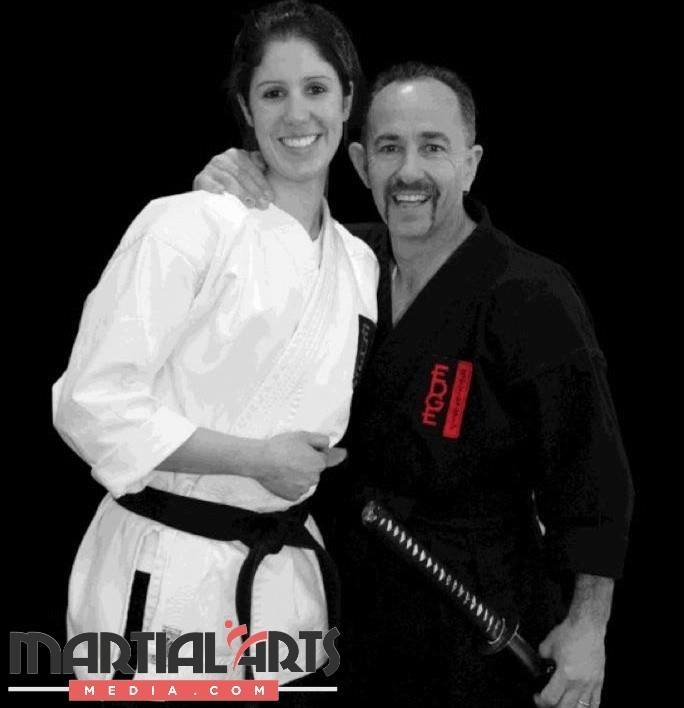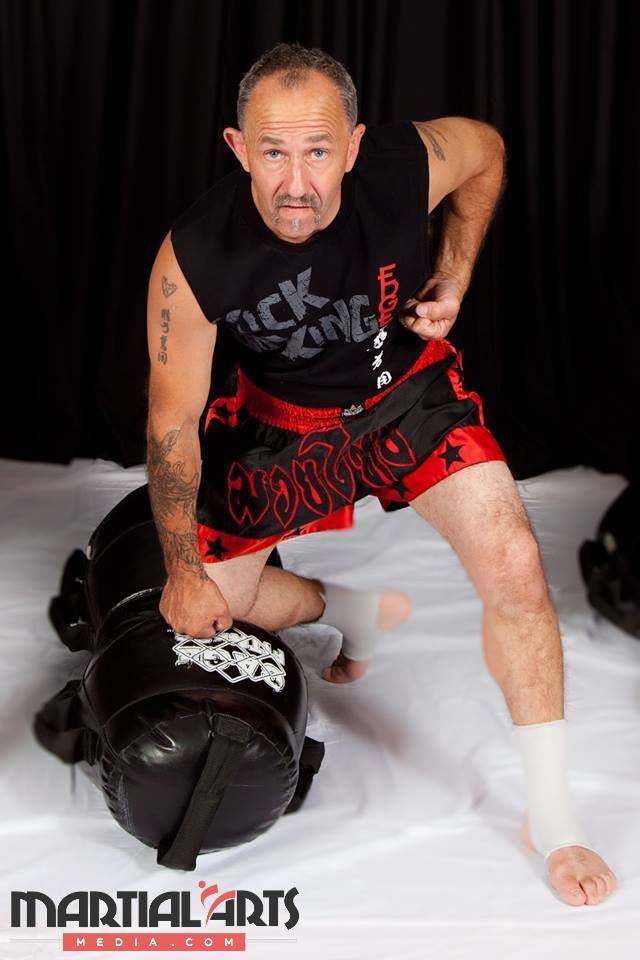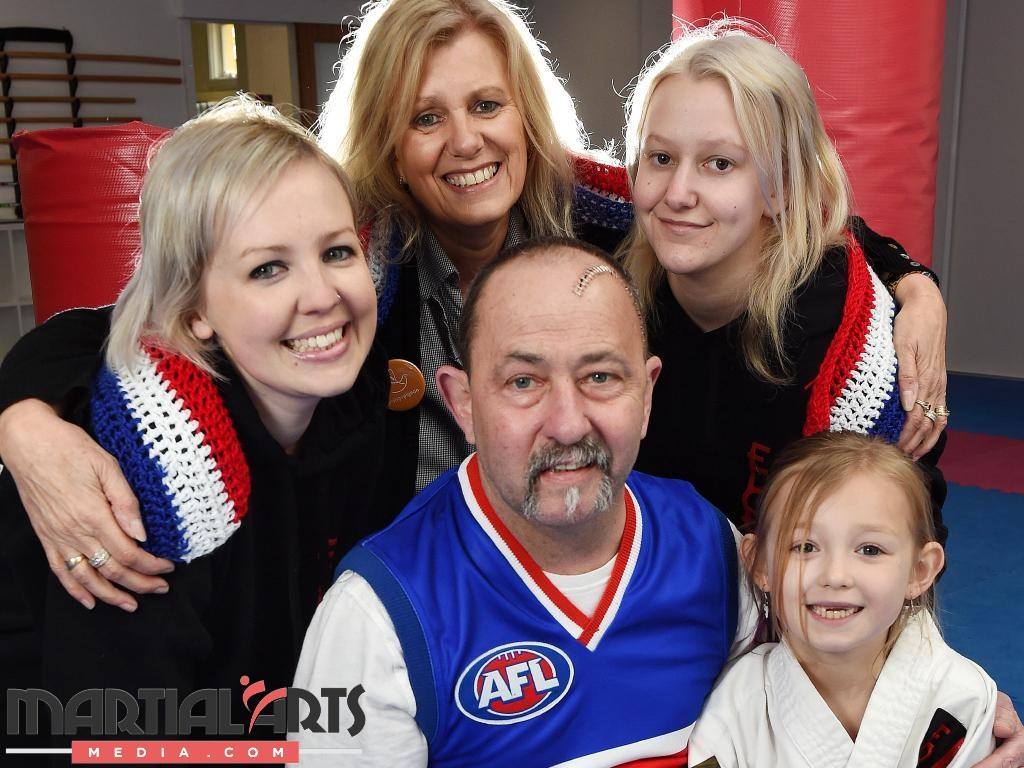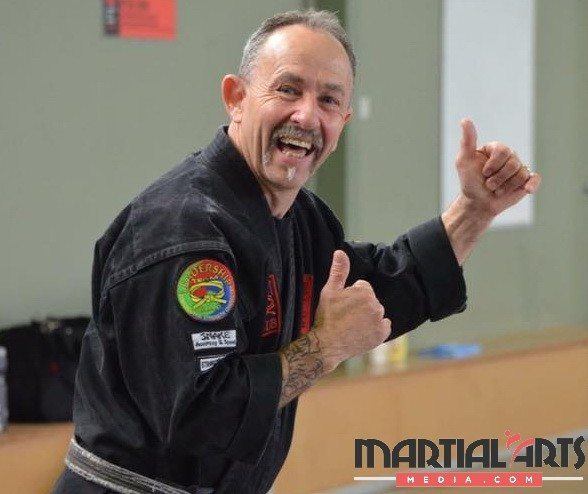Martial Arts school owners rate Henry as the ‘Go To' kids instructor. These 3 Must-Haves will make you follow suit.
- How Henry Calantog got to work with Kyoshi Fred DePalma & MA1st
- The essence of ‘Patience is a virtue’ when teaching kids classes
- Helpful strategies on how to keep kids entertained and motivated during martial arts classes
- The three general ways on how martial arts students learn
- How to achieve the right balance of being serious and using humor
- And more
*Need help growing your martial arts school? Learn More Here
TRANSCRIPTION
GEORGE: Hi this is George Fourie and welcome to another Martial Arts Media business podcast, episode number 43. Today, I have a guest with me that I met at The Main Event in Sydney. I was fortunate enough to be able to share some presentation at The Main Event, which is hosted, Ma1st and I was able to, it was my first presentation, it was good to get to a live event and meet Kyoshi Fred DePalma, who also introduced me to Henry Calantog and I was told by a lot of some of my customers and a lot of people that I engage with, mentioned that Henry is top notch and he has been helping them with instructors, helping them instruct their kids classes and everybody mentioned they've learned a lot from Henry. So of course, I wanted to take the opportunity to get Henry on the show. So welcome Henry!
HENRY: Hello George, thank you very much for having me on.
GEORGE: Awesome. So, we've got lots to talk about, but we're going to start of course, right at the beginning. So who is Henry Calantog?
HENRY: My martial arts background well, actually let’s go through the personal background. I am the first, I'm Filipino. You wouldn't know that, because I'm over 6 feet tall, if you're familiar with any Filipinos, obviously, that's extremely tall. I was the tallest kid in the village, that's what we would make the joke with. But I am the first generation of my family that was born in the US, so my parents of course emigrated from the Philippines – Cavite, if you're familiar where that little fisherman village is, migrated here, and I was born here and pretty much, we brought the rest of the family over.
Did martial arts off and on when I was a younger child, I tried to do eskrima kali because of a friend of a friend of my father knew how to do it, so we tried to train it in the backyard. Had a really bad experience with it, just because it’s a very old school instructor and my first class was putting my hand on the table while he was hitting my hand with a rattan stick. So, at the age 8 years old, I didn't find that very entertaining, so I didn't want to come back.
I enrolled into a Taekwondo class; I just remember getting the pajamas. I did a Taekwondo class at the YMCA; I didn't like that either, because I thought it was boring. We sat around too much and didn't do anything. It wasn’t until I was raised in Reno Nevada – if you know where that is. And due to a job transfer, my mom moved to Arizona. We lived in Chandler Arizona, which is a couple of miles from where I'm a direct student of Kyoshi Fred DePalma. And then, I’ve been a student of his for 20+ years and that's where we found his school in 1994.

And so, it pretty much started from there. And the biggest draw for me was that classes were fun, that it wasn't just my first two experiences, my hand, was getting beat by a stick and my second experience, we sat around and we just watched everybody do things, we didn't do anything. I think as a kid, I'm probably exaggerating – I probably kicked the pad five times in a two hour class and I just thought it was really awesome, with Kyoshi DePalma's and my other instructors, who was his head instructor, Jeff Wahlberg, was his head instructor at that school, because I was his student directly under him, they just made classes really fun and engaging for a young tween kid, you know?
And I've been with him ever since, and form a professional standpoint, I have had every job at the martial arts school. I was obviously the student – that went up. I did competitions, I helped out in classes, I moved up from helping out in classes to being a guy that cleaned the bathroom, who cleaned the throw-up at the end of a good class. If somebody threw up in class, you know those kinds of situations, I mopped the floor, I mopped the mat. I did every job, I eventually got moved up to just like an assistant role and then a job opened up at our school for a program director, which is kind of ironic, because we don't even have program directors in any of our schools anymore.
But it opened up and so at purple belt, I started being the program director in a school with over 300 active students. And I was a teenager in high school. So I was the handling credit card payment, I was making enrollment agreements, contracts – I mean, I was getting a very, very early I guess lesson on how the martial arts world worked – long story short, at the age of nineteen, I get sent out to run one of our satellite locations and I have been running that satellite location – which I eventually bought several years later, I've been doing that since March in 1999. So I have been the assistant, the assistant's assistant, a program director, I've been behind the counter, all the way to being a head instructor of a school, of a branch location, and now owning that school since 2001. So that's kind of the brief history of me.
I like to tell people, everyone keeps mentioning how I teach kids: it didn't even start off that way and the funny story about it is, one of the very first classes I ever helped out in, I had kids walk off the floor, because they were bored. Ironically, I was telling you the story that I was bored in the Taekwondo class – nothing against Taekwondo to my Taekwondo friends, I was just bored. But actually, one of my first classes that I was responsible for teaching myself, I had kids walk off the floor to sit with their parents, because they thought it was boring in a class.
To now, I mean, one of the schools we visited was Dave Loti’s school and they were telling me that some of the little dragons that they taught while I was there, they were crying that I wasn't there the next day teaching them. And so, it’s kind of, it’s funny, it’s a balancing act and we'll kind of delve into what we do with the company that I'm part of, Martial Arts 1st and the different instructor colleges and instructor workshops that we do with communications, but we'll delve into that more. That's the background of me.
GEORGE: Awesome! So I want to go back one step, because it is a big thing for you to be first generation born in a foreign country – how do you feel, and just knowing obviously, you teach a lot of kids and in the American environment: how do you feel it’s been different for you to grow up in a country where all your parents are from – well, you as well are from the Philippines.
HENRY: You know what, I have to honestly there was a language barrier growing up, not with me, but with my mother. My mother obviously, English was her second language and this is actually the parallel that I brought up with my wife and we had a conversation today about patience. And I brought this parallel that why I ended up at being such a patient person which eventually moved on to being patient with kids was because I saw people treat my mom terribly because English was her second language. Now, not all Americans are like that, so don't get the wrong idea, but often times if people meet someone who does have that language barrier, they already pass judgment on them right away.
So like a good example, we'd be going to the store and my mom would struggle, trying to communicate to the cashier about something. And sometimes the cashier, let’s be honest, the cashier could be this young kid who's just frustrated that he's at work that day. And so he's just rolling his eyes because he just can't communicate. And then I come along, speaking exactly like this that has taken speech classes, presentation skills from junior high all the way to where I am now and I speak clearly and it completely surprises people. And so I think one of the first things is from being the first generation born, I got to learn patience right away, because I had to be watching people being impatient with my mom and with my brother, who also had challenges as well.
I learned to be patient and it also made me understand that you can't judge people right off the bat. You have to look at them as the blank slate that's always something that can surprise you. And that goes to teaching kids, because I find that sometimes old school instructors, especially the ones that we deal with when we do our instructor workshops, that always say “Why, I just can't teach children. There's a certain age group that I just can't go past.”
I find the reason that they do that is because they already judge that kids are that way, instead of realizing that kids are this open tapestry that you can keep adding upon, that that kid might be emotional at the age of seven, but they are going to be incredibly resilient by the age of seventeen. So don't pass judgment and say, well that kid is always that way. So I guess being first generation born, kind of answering your question the long way, kind of helped set my path in that direction, which I try to communicate a lot of times when we do our workshops.
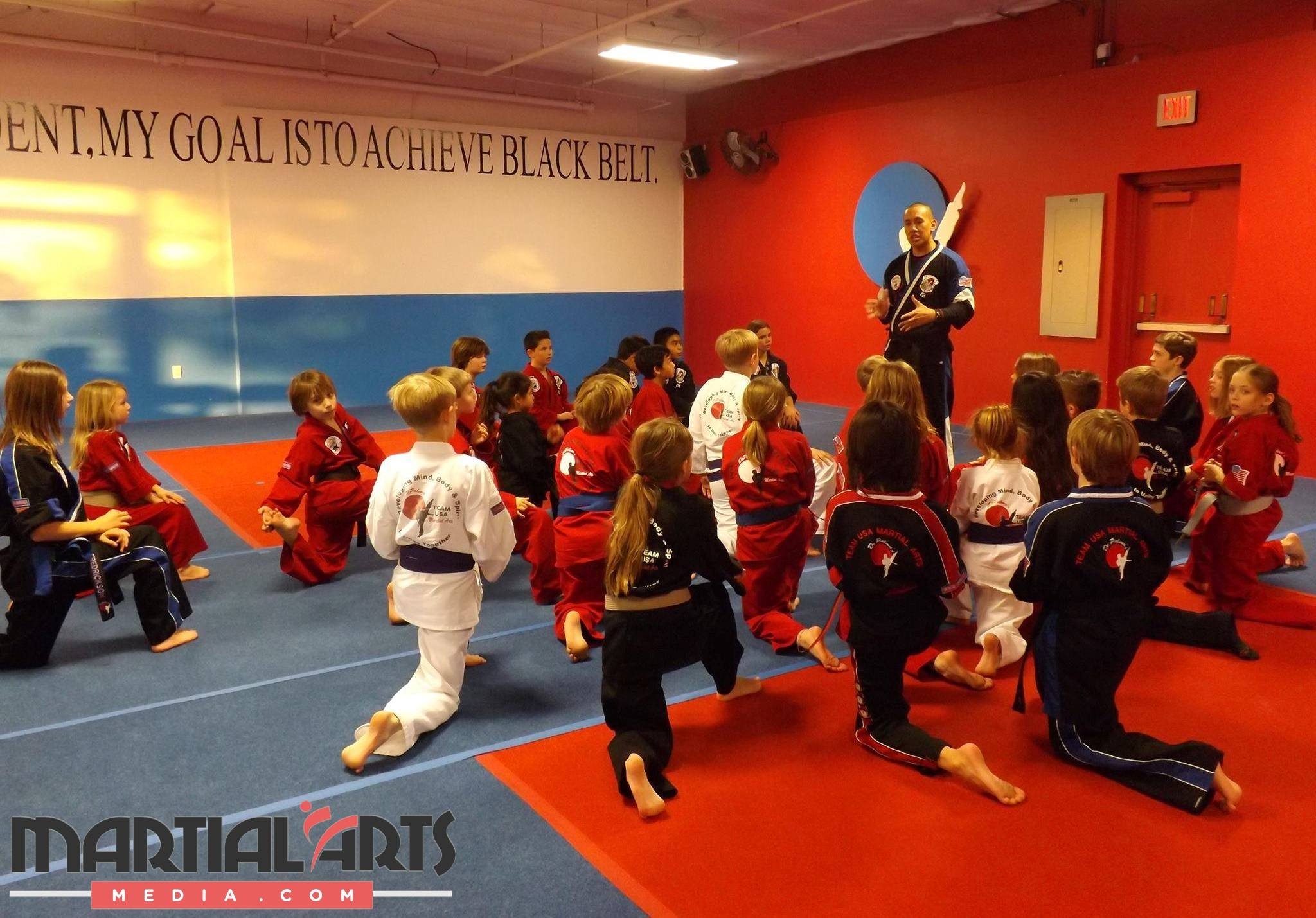
GEORGE: Fantastic. That's all right, so it’s easy for you, because you've lived through this and you experienced that. Now, when you do workshops and you have to actually teach instructors, OK, it’s almost… it’s not your teaching, but it’s actually I wouldn't say character. It could be character in a way, because you're just not patient and you can't deal with that. How do you go about actually teaching instructors that deeper level of understanding, how to work with kids?
HENRY: Well, it’s fun because in our last workshops that we were doing throughout Australia, one of the things that we covered was the fact, there's three general communication styles that we talk about and three general ways that people learn: visual, verbal and what we call kinesthetic, which is basically hands on, that's just like the big word that people use for it. So you have visual, verbal and kinesthetic. And one of the first things that I go over in a lot of our instructor things is, I ask the instructors what type of learner would you characterize yourself as? Now lest kind of go further.
So a visual learner is someone, for instance, kind of self explanatory: you have to watch it, you have to see it. A visual learner might be the kind of person who will say, hey let me see you do it first before I do it. So they have to sit back and actually watch it and see the examples and whether it’s teaching a kata or form, or it could be something as simple as the way you're supposed to fix something on your computer – they want to sit back and watch you physically do it.
A verbal learner is someone who needs explanation of why. Why am I doing this? What's the purpose for me doing this? Explain to me the big reason for this. I make the joke that my wife is a verbal learner, because before we can act on anything, we have to then have like a 15-minute discussion of why. And I'm more of a visual and kinesthetic person: I just see it and want to do it, but she wants the full explanation. So, verbal learners are people who need to know the reasons.
And kinesthetic – they just want to put their hands in it. They just want to get doing, I’ll learn better by actually moving. That's one of the first things we cover when we do instructor workshops is, we ask the instructors to self evaluate – what kind of learner are you? After I just described what learning types are, what are you? Are you more visual, are you more verbal, are you more kinesthetic? What is your primary learning style?
Now, you always learn in all three ways, but you tend to push and feel more comfortable towards one direction. Once the instructors in the workshop kind of recognize exactly what type of learner they are, then I usually throw them a bomb and say, that's the reason why all your students are that type of learner. Because that's the only one you know to tailor to. So if you're a visual learner, you teach visually. You teach by doing examples, but you don't necessarily explain why you're doing it. You just show them, I'm just doing this move and let’s just follow what I'm doing.
So you tend to attract more visual learners, because you go towards that. Or as the opposite of the verbal, you have the why people and so on and so forth. And the big challenge that we make instructors understand is, if for instance, when you get a lot of instructors who are visual, we'll tell them, fantastic, you're visual! Keep doing that, but how can you improve your verbal communication and how can you perform or get better at your hands on communication? That's always the fun thing to say – it’s easier to do, it’s kinesthetic, it’s hands on, but how can you get better? Because when you teach something, you want to hit all three evenly, always and consistently, even always inconsistently.
So like an example that we'll do in a workshop is, my base style is American kenpo, so I’ll just teach a technique we call 5 swords, which is you're blocking a roundhouse punch or haymaker and we just kind of go through the movements in that. And through that example, I will show the whole instructor workshop through the breakdown of the technique – so now they're learning something kind of fun to do, the instructors are having fun, because they're learning something new that's maybe out of their style, that's different from their style and we're going through the technique, but then they're seeing how I'm visually demonstrating it, so I'm in front of the class doing it while they're following me, I'm verbally explaining it saying, we have our body shoulder width. We have our hand going towards the neck, because the neck is open and the line of sight is easier for striking from here to there, so I'm explaining why I'm doing every certain move.
At the same move, I might be having them doing it on a partner at the same time, I'm explaining it and visually doing it in front of them, if that kind of makes sense. And I know you kind of saw me do a little bit of work when we were at the main event, so in one five minute section, I’ll demonstrate how to do all three teaching styles, all three communication styles and get it in a way where I hit every learning style evenly and everybody gets the point within less than 5 minutes, whereas a lot of instructors, if they're primarily visual, they'll lose their verbal people right away. Or worse, the verbal ones don't necessarily get belligerent, but they're that student that sometimes the instructor gets upset at, because they're the one going – well, why? Why would I put my foot forward? Why do I move my foot at that angle? And it’s not just adults – I mean, kids ask why all the time! They do!
And some instructors will get frustrated, they're like, they're always asking me – they just need to do it! And I'm like, no, they're a verbal learner. They're not being disrespectful to you; they just want to know why you're moving your foot this way. Well, we're moving our foot this way because the line of attack is coming in this direction, so we're stepping off the line of attack so we don't get punched in the face. If you took the time to actually explain it in those terms, then they're going to go, oh, that makes complete sense.
But it’s really trying to hit all three, and we'll spend an hour role playing, working each and every learning style individually and then teaching the whole team and staff how to integrate all three, so by the end of the session, I don't want to say we perform miracles, but we get them to think outside the box. And the biggest reports I get from every workshop that we do is that a week later, two weeks after, everybody's super jazzed about it, but they see the differences in class, and more importantly, it isn't the owner that sees the difference – it’s the students who are commenting, what happened? Normally I would struggle doing this, but now I'm not struggling this. And they think it’s them! They think, I must be getting better at this. They don't realize their instructor finally understood, oh – I learned to communicate better.
The big phrase I always like to say is that it doesn't matter the subject that you're communicating, it’s how you're communicating it that really counts, especially with children, which is one of the reasons you have me on today. I don't care if you're teaching Brazilian Jiu-Jitsu, Taekwondo, American kenpo, full contact kick boxing – the subject doesn't matter. I see amazing instructors that teach Brazilian Jiu-Jitsu to children. I've watched them, I've seen them, and I go, that's fantastic. They're hitting all three learning styles, they're building rapport with those kids, fantastic, they're making it fun and entertaining for them, but at the same time, they're getting substance.
And then I see, there are instructors who shouldn't even for lack of a better way of saying it, should never touch a child, because they get far too frustrated, they immediately throw their hands up at them, and they're like, they just won't get it at all. It doesn't matter what you're teaching, it matters how you're teaching it and the communication style.
GEORGE: That's such a big thing to really reflect on yourself. I know when, I've been helping martial arts school owners, probably for four or five years and it’s been OK, because people ask me what to do and I just go do it. And then we started to form the Martial Arts Media Academy, where I felt, all right: we've got to be teaching and coaching the stuff to really help school owners get a better result and it’s probably been the hardest thing that I've done, is having to really reflect on, how do I take something, in this case for me, it’s a complicated topic: how do I serve the left brain, how do I serve the right brain, the stories and give it that visual component and for me it’s really being sort of some people want the analytics, the logistics of things, and then other people want the story and you've got to tie it in with the metaphors or something that triggers off the pictures in the brain that each earning style is really grasping it at the end of the day.
HENRY: We call it the, one of the types that I present a lot, I've been doing a lot in the last two years is called the empathetic instructor. And the definition of empathy is literally seeing the world from another person’s viewpoint. That's very difficult. As much as you want to say, oh, I get it – you never will. I bring my wife as an example I can say I understand, but I don't understand. I’m not my wife, I haven't lived her life, but how much closer can I get to really understanding? Can I really let the guard down in kind of a figurative way and say, how do they see it? What we're here for, teaching kids: what does a five-year-old see?
When they see you do that move, you might be seeing – and this is one thing I address a lot with veteran instructors: when you see me doing a jumping kick, you see the way I chamber my knee. You see the way that I posture up. You might see the way I loaded up the jump before I went up. You'll see the technical part of it, because you're an advanced level instructor. You know what the five-year-old sees? You jumped really high! They don't even notice you did the kick, they just went, and you jumped really high! I think you jumped as high as a rabbit! Or a kangaroo!
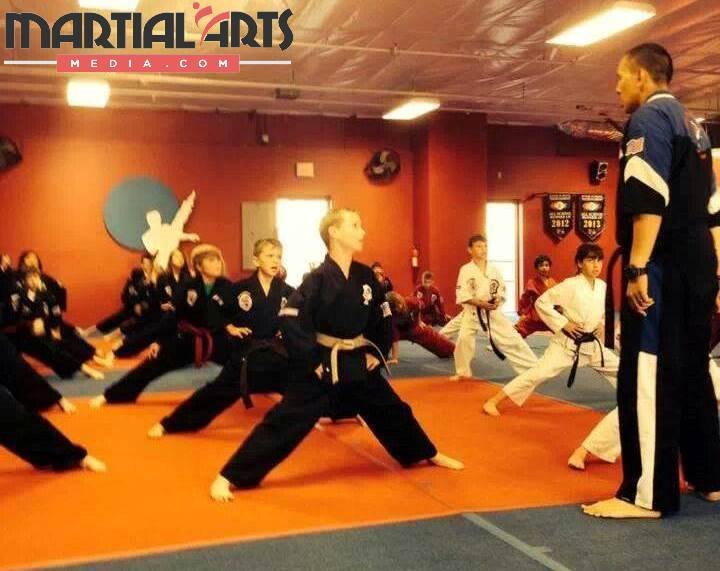
That's what they see and the instructor has to go back and go what it makes exciting for a five-year-old? That you're telling them, you're going to jump as tall as a kangaroo. You're going to jump as tall as a rabbit. You're going to be able to kick somebody that's this tall with that jump. That's going to be what their trigger point is and what motivation is for it, not to have the perfect jump kick to get a first place in a tournament, you know what I mean? Whereas, that might be why the instructor wants to do it, it’s what's the purpose of why do they want to do it.
So we go back to the why game: why do they want to learn it? Why would anybody want to do it, why would anybody want to follow through with it and then look at it from their vantage point? It’s funny because I do a lot of parallels between being an instructor and a salesman, because what does a salesman do? What's a definition of a salesman? It’s not just to sell something to you: a salesman is trying to fix a problem.
If I'm going to a car salesman, why do I go to a car salesman? My problem is, I need a car. My car is broken, my car is old, I need a solution. Why do parents, why do students come to us? Parents want us to solve their problem. What's their problem? My kid is really energetic; he needs an outlet for energy. My kid needs to learn confidence. My kid is getting bullied or harassed physically at school, I want him to learn to defend himself.
My reason for teaching is not the reason why they want to be there, I want to know why they want to and what the parents why could be a 100% different than what the kids why is. And you have to be able to communicate that. So that's one thing we address a lot with the empathetic instructor, is why does the kid want to do this, why does the parent want to do this, why does the art, the dojo, the school, want them to do this and then where's your mid point where you're hitting all three at the same time. If that makes sense.
GEORGE: Very much. Two things: one is, I love how you mentioned jump as tall as a rabbit, or jump as tall as a kangaroo, because that's the visual component you were just talking about, it’s that, alright, cool, I can picture that. Then you mentioned addressing the problem and something that I've always thought about as well is, the parent's problem is not the child's problem at that point in time, it’s a completely different thing. So do you have your core problems that you work on, or do you feel that you're trying – which is probably a hard thing to do, but to be really personal with your students and try and be on top of, you're here for this reason, you're here for that reason type scenario?
HENRY: It's kind of, that's like a multifaceted question. I think the best way to kind of answer it is, one thing that we tell our staff and we have a large chain of schools, we actually have a big instructor training tomorrow and one of the things that were constantly integrating to them and telling them is that black belt is the answer. And what I mean by that is, you don't sell a black belt to somebody and that's the answer that solves their problems. The path to getting a black belt will solve everyone's problems. Everybody's issues, the path to becoming – so if you need more confidence, the path to getting a black belt will always rebuild your confidence.
If you need to learn to defend yourself, the path to getting a black belt is going to do that. If the parent their child to have more self discipline, the path to a black belt so we always kind of redirect it to the one key black belt magical thing that when you become a black belt, through the process of doing it, you'll get everything that you want, but then you'll also gain everything that comes along with that, plus more.
One of the questions I always ask to instructors is, why did you first start training in martial arts? And you get a variety of answers: I wanted to build confidence; my mom signed me up, blablabla. And then I ask the next question: why do you continue to train in martial arts? And it’s always, almost always, it’s a completely different answer. They started because they were bullied, but they continued because they love the life skills that come along with it. They started because they were having confidence issues, but they love how physically strong they feel because of doing it and so, I hope I'm not being too broad about it.
We kind of channel it that way and make them know that through the process of training, through the process of goal setting, through the process of it all, they'll get everything they want, plus more. Everybody will and if you're a martial arts instructor and you've run a school for any amount of time that had students be loyal to you for 5 + years, you understand that, because you formed such close relationships with them, and it’s actually, you mentioned something about it might be difficult to form those one on one relationships – it can be if you don't try, so whether you are running a school of a 150, or you can do 600, if you're not trying to shake hands and really get to know everybody, then they don't feel that you're making a connection with them which means you're not feeling like you're really guiding them in the process to that black belt again. I hope that answers the question, I don't know if I kind of steered off a little bit?
GEORGE: No, that's perfect, that's perfect. So getting back on to the kids, so we've covered the educational part and really addressed the problems – where do you bring the fun part? And I should mention that a few instructors mentioned that your energy is although it’s contagious, it’s almost I don't know why can't I be like that? How come I don't have your energy? So I can gather how you bring a lot of energy tot he class, which would be fun for the kids, but again, how would you transfer that message over to the instructors? How do you focus on making the classes fun for kids?
HENRY: Number one is this is funny, because I say this over and over again, the name of the company I work for is Martial Arts 1st. We put the martial arts as number 1 – that's what we do, is martial arts. So I got brought up in a pretty old school mindset that we learned to fight, we learned to break things, this is what we do. In the process of that, I had an instructor with Fred DePalma and Jeff Wahlberg; they made jokes constantly while we were doing class. They were having fun with us. They were praising us, but at the same time, they'll make those off handed jokes. That's what you have to, you have to learn from a kid’s perspective.
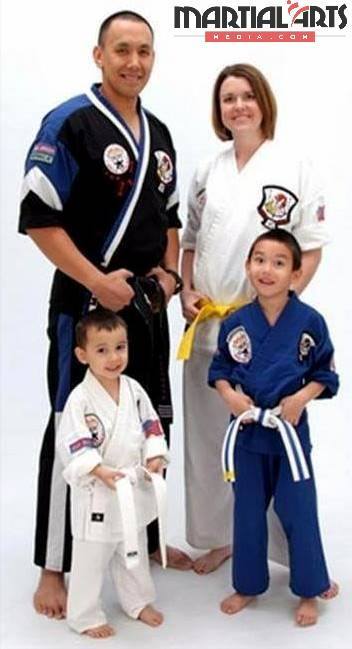 Energy is – actually let me kind of segway this a little bit: before I teach, I'm a business owner, so I’ll do all my business stuff in the morning and early afternoon, but before I teach, no matter what, I usually take at least 30 minutes to an hour of me time before I have to teach that day. Whether it’s a private class at 3:30, even if I might have been at the school all day, at 2:30, I get in my truck and I drive.
Energy is – actually let me kind of segway this a little bit: before I teach, I'm a business owner, so I’ll do all my business stuff in the morning and early afternoon, but before I teach, no matter what, I usually take at least 30 minutes to an hour of me time before I have to teach that day. Whether it’s a private class at 3:30, even if I might have been at the school all day, at 2:30, I get in my truck and I drive.
Even if it’s going down to the local store to get a water, or if it’s just me taking a drive, because my school is located in the middle of beautiful mountains, so there's beautiful hilltops, and you can just go through the neighborhoods and just kind of take everything in. I play some upbeat music and I just completely shift my mindset that I have to be a performer that day. And that's where it comes in, because if you think about performers from a kid’s perspective, one huge part of engagement is that you have to keep the kids entertained.
Think about the programs that kids watch, from the movies, from the television programs, to even like the YouTube videos they're watching – why are they watching that? My own kids, right before bedtime, my son says, can I finish watching this YouTube video? Because they're really into video games and gaming and stuff like that. And they're watching it and if he has his earbuds in, I let him finish it.
And all of a sudden, he just starts laughing hysterically, because whichever YouTuber he's watching, made some kind of joke. And my kids aren't exactly; their humor isn't on a high level. He might have made some joke about the way the guy smelled in the video and my kids just start laughing. But my kids want to keep watching it, because they're trying to, not only do they see the content of what he's doing, but they're entertained by how he's presenting it and the jokes that he's making.
And so that's a huge part of taking that hour before you have to go and teach, getting yourself pumped up and prepare to be a performer. I will make a prefix: I was in drama almost the entire adolescent life, all the way to adulthood. So I did theatre production, I was in musical theater and I think that all of that really – and I was in speech and I debate, skills of high school, so I was used to being in front of people and entertaining them, I even used to do standup comedy when I was in high school at the local coffee shop.
Not very well, because I find my students laugh at me, because if they don't laugh at me, I’ll make them do more pushups, but that's my humor. That's how I get people to laugh now, but I think not only do you have to take a persona of being an instructor with kids. You have to understand, you have to perform in front of them if you want to keep them engaged, because one thing I tell instructors, I keep repeating that, and I tell this over and over again to everyone I do these workshops with: if you can't keep them engaged, they'll never learn that flying arm bar routine that you want them to learn. They'll never learn that kata that you think is so essential to your art form, that everybody must learn this technique in this art form because your art form is the essence of this. They'll never want to learn it if you don't make it fun for them in the process of doing that.
And so, like with kids, we'll make jokes, but we'll make sure to watch our hour so that it doesn't get to giggly. Like a good joke we make all the time is, let’s say, what's a good example, what joke did I make today with the kids that made them laugh: we were doing pushups, they were doing a pushup set on the ground, and I'm like, come on, keep going, keep going, until you feel your muscles burning! Are they burning? Are they on fire? Oh, too on fire, you've got to slow down; you've got to slow down! No, too hot, too hot – way too hot! Tssss – you're hot man, you're so hot right now.
And the kids just start laughing, because of the way you present that, but what's the kid doing while he's doing that? He's doing pushups while he's doing it and he's having a smile. So that can be kind of an example of the humor directed in the direction with kids. I’ll also make it all the time, where if I ever feel like the humor is going too far, then I’ll bring everybody back in and say, OK everyone, feet together, hands to the side, eyes on me, I'm really tall, so we really bring the focus back into it.
That's where some instructors will almost go too humorous and then they lose the class completely, so it’s very much a push and a pull and we call it the balancing act. You have to make sure you're right on the border where you're making yourself still kind of funny, but then you're still being serious at the same time. And you never want to be too serious with kids, but then you never want to be too funny with kids. And that's kind of a process we talk about.
GEORGE: Fantastic, that was actually my next question is, how do you keep that balancing act, because you're either going to be too serious, or you're going to be too funny, so you've got to have the push-pull.
HENRY: Push-pull. And we talk about reading your class and reading how they're reacting to things. A good example is, one of my instructors was teaching a kids’ beginner class, it’s a small beginner class today, there was about 7 or 8 kids in it today. And she was, we have our belt testing, belt grading, whatever, however you want to call it, this Saturday. And so they're getting ready for it and you can tell some of them are stressed about it, they're a little stressed, because they know they're test is coming up. And so, sensei Chester is my instructor, sort of making a joke with them like, we're moving like snails, let’s all move like a snail.
And then at one point, everybody's moving really slow, getting into it. Then at one point, one of the kids, he is our kid that does this, so we all have a kid that does this: he just takes it way far and he's, when we say move slow, we're talking about, we're making everybody go slow motion a lot. Slow motion move. He's standing there completely still and of course, sensei asks him, we're supposed to be moving. I am moving, I'm just moving so slow you can't see me. And then you see that and the other kids pick up on it and they kind of start going, oh, I'm going to do the same, because that's what kids do.
When one of the five girls falls, what do the rest of the girls do? They all start falling, because they think it’s funny, so sensei did the best thing and said, OK, wait: let’s all move as slow as possible for five more seconds. Ok, great: now, let’s be normal and go back to it. So it’s about giving that inch to them for a little bit, but then learning to redirect and then go, OK, now let’s be normal, black belts in the making right now and that is goofy. So it’s, read the class, but also kind of see the sign post that you go, if I let them have one more inch of this, I know it’s going to be a little bit too far.
And that's one of those general things that if you teach long enough – and typically, instructors will know what I'm talking about, when it does go wrong. So they'll tell me, yeah, I had this one class, where I couldn't get them to, I mean, they were too goofy. They start playing around too much and I couldn't get them in. Usually I can talk to that instructor about the individual situation and my first question is, well, where do you think it went wrong and usually the answer is, when I went along with the joke for too long.
When I should have redirected it right away and started going back to the drill, but I ended up and this is an issue that we talked about with our own instructors, I became a spectator, just watching the kids play off each other. So instead of being the person that steps in and says, OK guys, let’s go back to the drill, let’s go back to the kata, I just kept stepping back going, wow that's funny. That's really funny, wait, it’s getting too funny and I didn't interject and step in right away. So that being the one thing, it’s very individualistic, but it’s finding where that turning point is, I guess to answer that question.
GEORGE: Yeah, all right, fantastic. Henry, that's amazing. So we've got really the empathy part, I really liked that. I guess putting yourself on the other side of the table really thinking of how you're being perceived in a way, being empathetic.
HENRY: Exactly.
GEORGE: So visual, auditory and kinesthetic.
HENRY: Kinesthetic, hand on.
GEORGE: We mastered that. Keeping classes fun and having the balance act and really putting yourself in their shoes, how they learn. I like the associations of really jump as high as a rabbit, or as high as a kangaroo, that really making sure that you put all those components together. So before we round up, I do have one more question. Two more questions. One, where we can find out more about you, but one is, where does Master C come from?
HENRY: The country or state?
GEORGE: Master C!
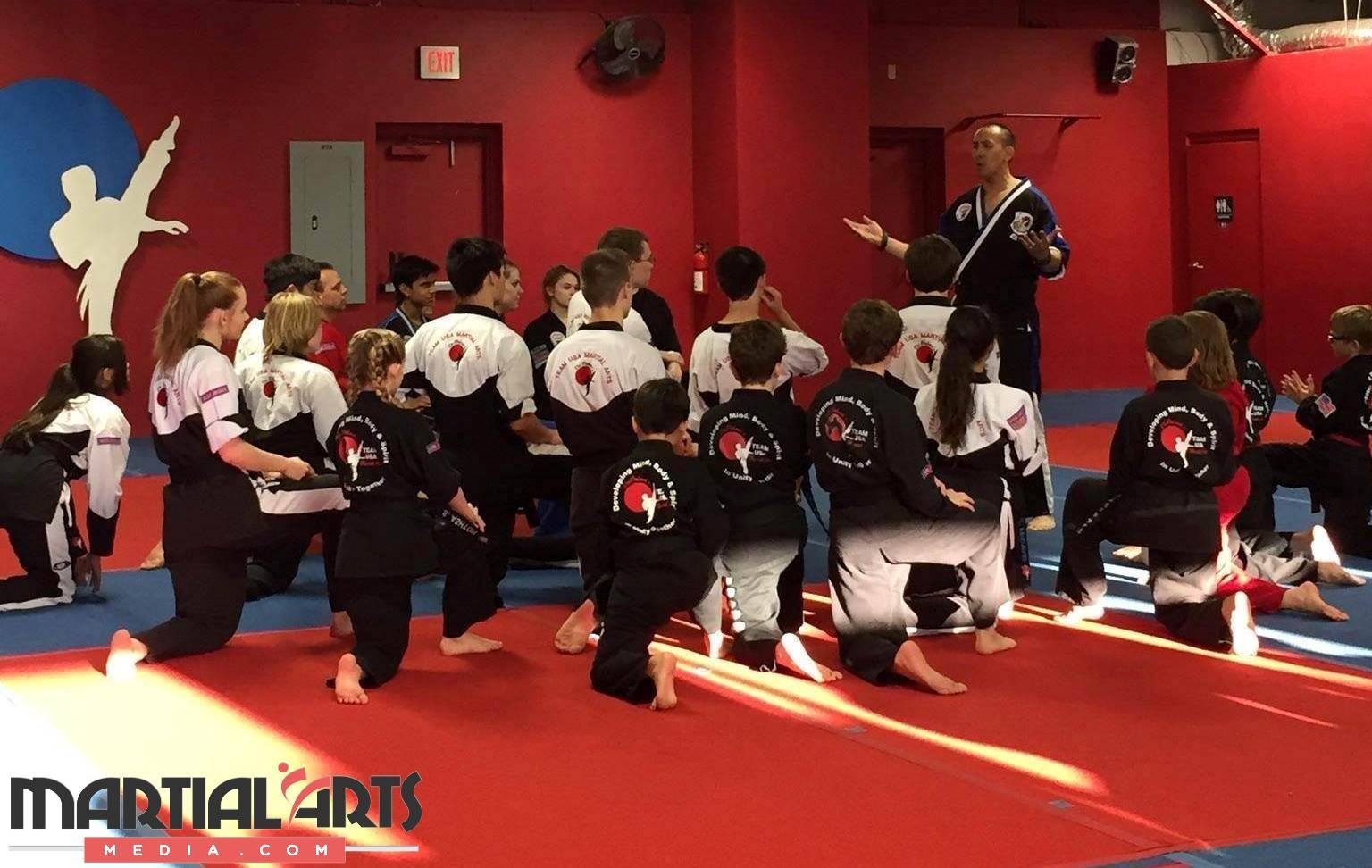
HENRY: Oh, Master C, gotcha! Ok, so this kind of goes along with teaching with kids and you've got to understand this, OK? So my name is Henry Calantog, Calantog being not a really overcomplicated last name, but when I first opened our Scottsdale school, I taught a student, a little dragon, he was probably 4 years old, his name was Greg Goulder. And Greg had a speech issue, he actually was taking speech classes, going through speech therapy, because he had a little bit of a lisp, so he had a difficult time pronouncing things.
He was a very emotional four-year-old. And when I introduced myself, my name is Mr. Calantog and usually, I play a game with the kids when I say, what's your name, and they'll say, my name is Greg. And my name is Mr. Calantog, what's my name? Mr. Calantog. What's your name? What's my name? And we kind of play it back and forth, and I’ll go, OK, now we're friends, because we know each other, that's been kind of my little tactic that I've done with kids for years to kind of break that little report building shell.
When I tried it with Greg, he couldn’t say my name right. So he started stuttering and at one point, he started tearing up, because he knew he had a speech issue, and because he couldn't say Calantog, he was a four-year-old boy in his first orientation class, starting to cry. And I stopped and said, no, no, no, wait one second – Greg you are like the coolest kid I know. You can call me Mr. C. And you know, he wiped his tears.
No one else calls me Mr. C, you can call me Mr. C. And now 20 years later, everybody calls me Mr. C, or Master C. It just stuck because since he kept calling me that in classes, other students kept calling me that and then it just kind of built up. So going back to teaching kids, it wasn't about me making and pushing him to do what needed to be done, what was he comfortable doing and what made him feel special, because I made him feel comfortable.
GEORGE: Amazing.
HENRY: Good story?
GEORGE: Love it, love it. Thank you Henry, it’s been great speaking to you. So, please share with us – where can people find more about you and ma1st and all the rest.
HENRY: Ma1st.com, Martial Arts 1st. Obviously, we're in the US primarily, and so we hold workshops, we're almost every other month, we hold workshops in the US throughout everywhere, we're going to be in LA early in September, we're back in Texas I believe in November, then next year a big traveling schedule. We go to a lot of the big events, of course we're going to be in Australia I believe rudimentary the next Main Event is going to be in the August-September timeframe, because it’s going to be a little later in the year.
So easier for all of our Australian clients to kind of hit it and we'll be available for seminars and events and instructor workshops while we're out there next year up in Australia. So yeah, ma1st.com, you can find out more about us. And you can read about all the different features that we have, Kyoshi Fred DePalma – he's my instructor. He's also the man that brings me out and does all these wonderful things. You can contact him for more information, or myself.
GEORGE: Fantastic Henry. I look forward to that; I will also be at the Main Event again next year in Australia. I am planning to come to the US though.
HENRY: Good!
GEORGE: So yeah, I’ll definitely get in touch.
HENRY: San Diego is a beautiful place.
GEORGE: It is. Awesome, thanks a lot Henry, I’ll speak to you soon and for the show notes, you can go to martialartsmedia.com/43, the number 43. Thanks a lot for being on Henry; I’ll speak to you soon.
HENRY: Very welcome, you have a great day.
*Need help growing your martial arts school? Learn More Here.
Enjoyed the show? Get more martial arts business tips when you subscribe on iTunes for iPhone or Stitcher Radio for Android devices.



